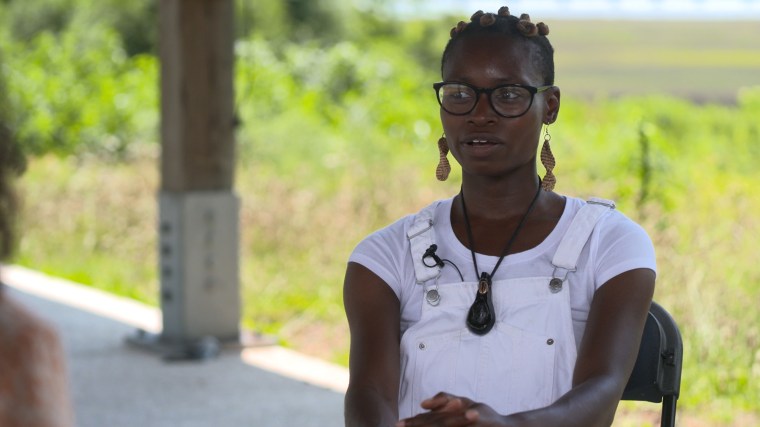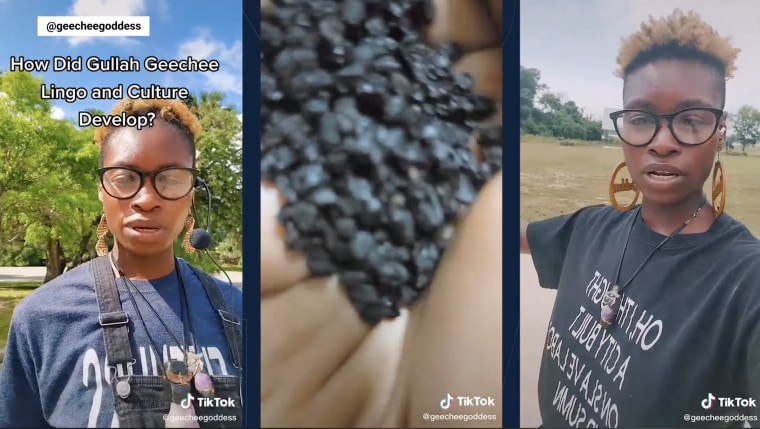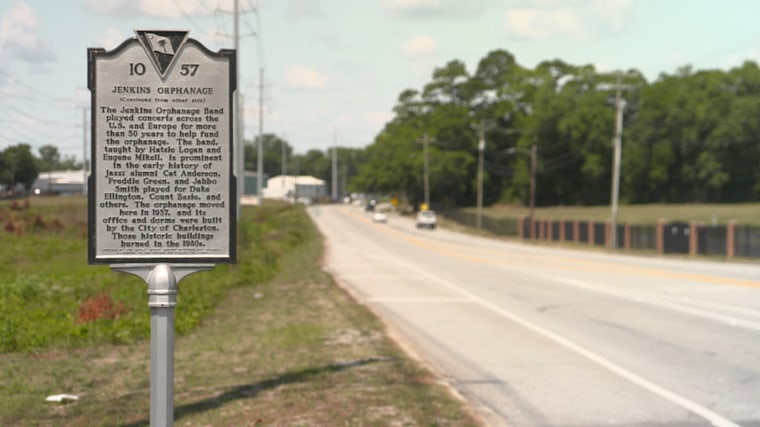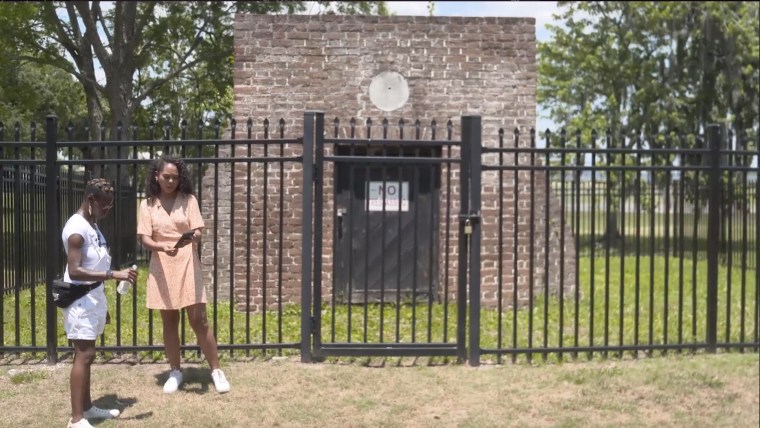The Gullah Geechee individuals make up one of many oldest and most extraordinary communities in america. However in case you’ve by no means heard of them, it may be as a result of their historical past is commonly sifted out of textbooks, and the longevity of their tradition is now at risk.
This distinctly African American neighborhood started on the jap coastal islands — spanning from Florida all the way in which as much as North Carolina within the 1600s. Slaves, largely from West Africa, lived in full isolation from the continental United States, separated by rivers, swamps and waterways that weren’t straightforward to cross.
“That created an atmosphere for us to create our personal tradition, outdoors of when white American tradition developed,” stated Akua Web page, a Gullah Geechee tour information, entrepreneur and content material creator from Charleston, South Carolina.

The Gullah Geechee individuals held on to tales, spiritual practices, farming strategies, recipes and even fashioned their very own language, separate from that of colonial Individuals on the mainland. However now, the language, and tradition, face a brand new menace.
“Gullah is now thought of an endangered language, as a result of my technology and youthful — you’re not going to seek out us fluent in talking precise Gullah,” Web page, 28, stated.
A 2005 environmental affect assertion estimated there have been 200,000 Gullah Gechee individuals within the southeast area of the U.S That quantity has seemingly shifted because the neighborhood continues to unfold. There are massive concentrations of Gullah Geechee individuals in cities like Jacksonville, Florida; Savannah, Georgia; and Charleston — that are near the remoted islands the place the tradition was created. Nevertheless, there isn’t a official knowledge on how many individuals at the moment communicate Gullah.
When anti-literacy legal guidelines have been lifted, permitting Black populations to discover ways to learn, write and attend colleges for the primary time, Web page stated, “lots of people have been being crushed that have been talking Gullah. In order that historic trauma transferred over.”
Web page turned to social media to share Gullah tales with youthful audiences. She’s had success, with greater than 55,000 followers and 700,000 likes on her TikTok, and greater than 440,000 views on her YouTube channel.
Viewers can discover movies about conventional therapeutic practices, equivalent to how elders of their neighborhood put Spanish moss of their footwear to decrease their blood stress, and used elderberry tea to ease irritation.

Web page additionally explains the origins of the Gullah Geechee neighborhood and the disparities that her neighborhood faces, together with not accessing the identical high-quality rice that its ancestors cultivated centuries in the past. Except for the historical past classes, Web page presents a number of movies on Gullah translations and slang which might be used within the Gullah Geechee neighborhood.
The suggestions on these movies has been largely constructive, with many individuals writing within the feedback that they’ve both by no means heard of Gullah Geechee tradition, or they’re occupied with connecting extra with their very own ancestral roots locally.
“I really like TikTok. It has been so instrumental within the work I’m doing,” Web page stated. Her purpose is to move the torch, in order that her tradition, which has survived for tons of of years, can preserve going.
Though she’s now outfitted with deep historic data of her individuals, Web page grew up within the foster system in South Carolina and wasn’t all the time with different Gullah Geechee neighborhood members. That made it difficult for her to know her identification. She hung out on the Jenkins Institute, which was based by a Gullah Geechee, the Rev. Daniel Jenkins, in 1891 (certainly one of its early areas, within the landmarked Outdated Marine Hospital in Charleston, nonetheless stands immediately).
“I used to be uncovered to it my entire life, however no person actually sat me down and was like, ‘Lady, you’re Gullah Geechee,’” Web page stated.
Though it wasn’t clear to Web page, her accent, vocabulary and mannerisms caught out amongst her friends. “Individuals are uneducated in regards to the linguistic variety of America, so once I got here round to sure people they only thought what I used to be talking was damaged or dangerous English. So I’d get bullied so much,” Web page stated.

“Now I’m an advocate for Black children in foster care,” Web page stated, “I really feel like I wanted to expertise that with a purpose to lead me on this path and join with my ancestors.”
However her considerations about the way forward for the Gullah Geechee neighborhood stay prime of thoughts.
“Within the work I’m doing, I’ve seen a number of elders who’re so passionate and passionate about it,” she stated, “I’m one particular person, you already know, so I can’t do all of it.”
Web page says there’s a pleasure and function in all of the schooling that she does, particularly in breaking issues down in chew measurement items on social media. That pleasure is one thing she thinks about so much round Juneteenth.
Many individuals use the day to mirror on freedom, because it commemorates the day in 1865 when slaves in Texas have been notified of their freedom, two years after the Emancipation Proclamation was signed.
“Our liberation is by figuring out the place we come from. … I can inform simply by the rice tradition that now we have down right here and connecting again into Western and Central Africa and the way we’ve been rising and cultivating that for eons,” she stated, “We liberate ourselves by taking possession.”
Web page’s excursions make their strategy to Riverfront Park, the place guests are given scenic views of the Cooper River, which is commonly speckled with individuals testing their fishing traces out on the docks. She ends her excursions at a web site referred to as the Useless Home, situated proper subsequent to the river.
Historians say this brick constructing is probably going the oldest construction standing in Charleston, however native residents speculate over whether or not anybody was ever killed on the web site. Web page notes that the land it sits on was a part of an lively plantation, and that the identify is probably going linked to that point interval.
On the finish of the excursions, “we pour libation for the lives that have been misplaced throughout slavery in Charleston,” Web page stated.
The homage is not only for “ancestors” identified and unknown “who perished throughout he slave commerce,” Web page stated, but in addition for “individuals who perish now, simply coping with racism and violence, however particularly acknowledging those that skilled slavery and the names that individuals don’t actually name out and have been forgotten.”

Web page asks tour company to learn a few of their names out loud, and to pour out a little bit of water with every identify. She says ashe after every one, which holds an identical which means to amen.
“I really feel prefer it’s our obligation to inform our ancestors’ story, you already know, we shouldn’t need someone else to inform our ancestors’ story,” Web page stated, “Going again to that African proverb, ‘Till the lioness tells their story, the story of the hunt is all the time going to glorify the hunter.’ So I really feel like you already know, I’m that lioness. I’m gonna inform the story of my ancestors.”
